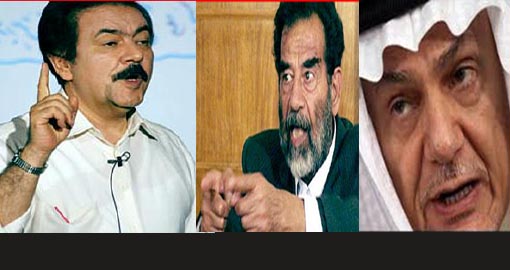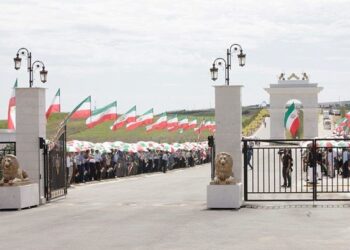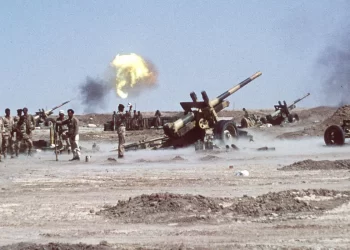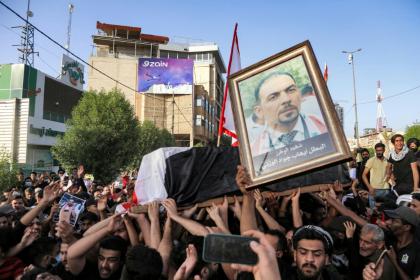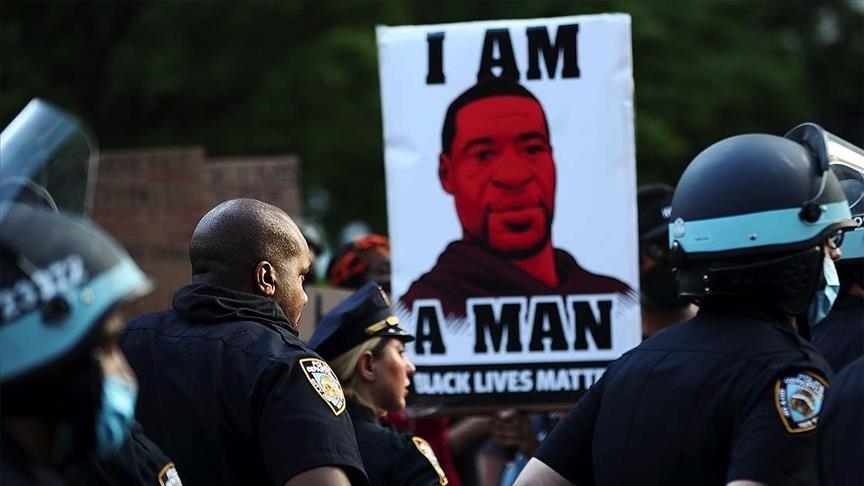Human Lives Human Rights: The People’s Mojahedin Organization has been directly involved in one of the most significant human rights cases against the Islamic Republic of Iran. This case revolves around the tragic incident of the martyrdom of Iranian pilgrims during the 1987 Hajj ceremony. During this event, a considerable number of innocent Iranian pilgrims lost their lives due to the actions of Saudi government agents, who collaborated with treacherous members of the People’s Mojahedin Khalq Organization.
The Saudi government violently suppressed the event known as the Disavowal of Polytheists in Hajj, which occurred in Mecca on July 31st, 1987. Tragically, numerous Iranian pilgrims lost their lives during this incident. Later evidence emerged, indicating the involvement of the People’s Mojahedin Organization and their collaboration with the Baathist regime of Iraq and Saudi Arabia in the massacre of Iranian pilgrims.
Following the tragic massacre of Iranian pilgrims in Makkah, the People’s Mojahedin Organization promptly released a statement, holding the Islamic Republic of Iran accountable for the incident.
However, even before the members of the MKO made their statements, information regarding the involvement of the People’s Mojahedin group in the killings on July 31st had already reached the authorities of the Islamic Republic. For instance, Ayatollah Khamenei, who was the president of Iran at the time, mentioned the role of the People’s Mujahideen in the events of the Bloody Friday in Mecca during his speech in July 1987. He stated, “We strongly suspect that the MKO and their very low-level mercenaries who are willing to commit any crime against their own country, were involved in this atrocious act. The evidence indicates that there were Persian speakers who concealed their identities and assisted the oppressive global powers and the Saudi regime in carrying out this crime. It appears that this incident was premeditated and there is a possibility that it was coordinated with the Persian Gulf case that occurred several months prior.”
Baathist Regime of Iraq Collaborated with Mojahedin in Mecca Massacre
Based on the confession of a former member of the sect named Rizwani, it has been revealed that Masoud Rajavi took advantage of the Hajj period to carry out a premeditated plan in collaboration with Iraq. This plan involved the killing of peaceful Iranian pilgrims who were participating in the Disavowal of Polytheists ritual, all in pursuit of Rajavi’s personal objectives.
Based on the existing evidence, it appears that the Iraqi regime, which was engaged in a war with Iran during that period, had knowledge of the conspiracy involving the People’s Mojahedin and the Saudis. Furthermore, it is believed that the Iraqi regime collaborated with the People’s Mojahedin to orchestrate a violent outcome during the Hajj rituals.
During the disclosed negotiations, Abbas Davari, a former member of the Mojahedin-e-Khalq organization who served as the head of the convoy responsible for sending the Mojahedin-e-Khalq to the Hajj rituals in 1987, shared information with Iraqi security officers. He revealed about the presence of the People’s Mojahedin in the Hajj and the cooperation between the Baathists and the Mojahedin-e-Khalq as follows:
Abbas Davari: “We want to be part of the Iraqi Hajj delegations and not be identified as non-Iraqis or affiliated with the Mujahideen. We plan to join the Iranians on the same day they arrive for Hajj. However, you know that Iranians come in caravans, so we aim to penetrate their groups and establish communication with them. “.
Iraqi security officer: “How can we arrange a visa for you? And where do your forces intend to establish communication?”.
Abbas Davari: “In Jeddah, all pilgrims initially disembark, and we are considering a small group of individuals who are not in Iraq currently. “.
Iraqi security officer: “Once the agreement is in place, we can issue Iraqi passports for them and send them with selected Hajj caravans. Each person will receive a passport and return it at the designated time. This seems to be the only feasible option we have. “.
Abbas Davari: “Considering the current sensitivity, it would be preferable for them to return to a different country and then enter Iraq from there. “.
Iraqi security officer: “Since the passports will be accompanying one of our convoys, they cannot be returned with the same convoy. Saudi Arabia keeps a record of each convoy, so your person can leave the group upon arrival, carry out their tasks without being recognized, and eventually deliver their passport to the designated person assigned by us. “.
Abbas Davari: “The Mujahideen members desire to be embedded within the Iranian convoys, accompanying them day and night, without revealing that they arrived from a separate convoy. “.
The organization’s members entered Saudi Arabia using Iraqi passports, posing as Iraqi pilgrims. The convoy was led by Abbas Davari (Rahman), an experienced member of the organization. The forces, gathered and deployed from various locations abroad and the region, had grown beards weeks prior to the mission. They departed from the Saadati building in Baghdad on a bus. Upon arrival in Saudi Arabia, this group seamlessly integrated themselves among the Iranian pilgrims, allowing their actions to be attributed to Iranians.
According to Norouz Ali Rizvani, a former member of the organization, here are some of the names of individuals in the convoy that we have managed to obtain: 1) Haj Masih, 2) Haj Sadeghi, 3) Hossein Muslimi, 4) Bahram (Taqi), 5) Asghar (referred to as Asghar Radio), 6) Javad Saleh Tehrani (Bijan), 7) Kaveh, 8) Hossein Fili (Abbas), 9) Hamid Batabi (Rahim), 10) Javad, 11) Hassan Inayat (Sadiq). The leader of the Iraqi team was identified as Captain Khalid.
According to the aforementioned separated member, following the return of the mentioned convoy from Saudi Arabia, some individuals within the group started causing issues over time, leading to an increased likelihood of their departure from the organization.
To prevent the dissemination of information outside, the organization systematically eliminates troublesome individuals one by one.
The documented instances of this issue are cited as follows:.
1. Asghar Radio, after a period of time, parted ways with Mujahideen Khalq, and the organization dispatched him to Pakistan. Eventually, it was reported that Asghar had been killed by agents of the Islamic Republic.
2.Bahram Taqi, following the Mecca massacre, encountered issues with the people of Tabriz and faced disciplinary actions, resulting in his demotion within the organization. Subsequently, the organization made an announcement stating that Bahram had drowned in the pool of the Badizadegan base due to his lack of swimming skills, despite being the only person present in the pool at the time.
3.Javad was discovered hanging in the repair shop of one of the camps. According to his friends, he did not seem to be in a distressed state of mind on the night of the incident. It is worth noting that Javad’s first wife had been killed during the Mursad operation, and his second wife was pregnant at the time of his death.
In addition to the aforementioned cases, there have been other questionable deaths in the Ashraf camp during the same period. At least 18 of these deaths have been revealed by former members of the organization. However, it remains unclear whether the individuals who were murdered or deceased were directly involved in the 1987 Hajj massacre. Nevertheless, it is evident that all these deaths occurred shortly after the mentioned incident.
Masoud Rajavi’s secret trip to Saudi Arabia:
In March 2001, a significant revelation came to light regarding Masoud Rajavi’s secret trip to Saudi Arabia. Thirteen years after the tragic events in Mecca, a photograph of Masoud Rajavi was published in Mujahid magazine, clearly indicating his presence in Mecca in 1987. The photo depicted not only Rajavi but also several individuals responsible for foreign relations, intelligence, and protection within the People’s Mojahedin organization. These individuals included Abbas Davari, Alireza Babakhani, Mohammad Seyed Al-Muhaddasin, Alireza Sadrhaj Seyed Javadi, and Reza Daroudi.
Furthermore, additional evidence emerged suggesting that the leader of the People’s Mujahideen, Masoud Rajavi, clandestinely traveled to Saudi Arabia in 1987, coinciding with the events in Mecca. It was revealed that Rajavi had received an official invitation from King Fahd, further substantiating his presence in Saudi Arabia during that time.
Regarding this matter, “Mehdi Abrishamchi” informed an Iraqi intelligence officer about the need for utmost secrecy during the trip. He emphasized the importance of remaining hidden even from the airport staff. To ensure this, a specific timetable was devised, which only the three individuals involved were aware of. It was expected that the timetable would be strictly followed, with no knowledge of it being disclosed to anyone else.
During subsequent meetings between the People’s Mojahedin and the Iraqi Intelligence Organization, it was emphasized that the aforementioned trip had the objective of securing increased support from Saudi Arabia. The purpose of this support was to strengthen the organization’s ability to confront the Islamic Republic of Iran.
Maryam Sanjabi, a former member of the People’s Mujahideen, sheds light on the events of 1966 and the killing of Iranian pilgrims in Mecca. She highlights the collaboration between the Mujahideen and the Al Saud regime, stating that upon Masoud Rajavi’s return from Saudi Arabia, the Saudi authorities, acting on behalf of King Abdullah, the Saudi Crown Prince, not only covered his travel expenses but also presented him with three trucks filled with gold. These trucks contained significant amounts of gold bars, jewelry, and Rolex gold watches. She further asserts her belief that besides the Al Saud regime, the Zionist regime is also among the financial backers of the Mujahideen-e Khalq Organization (MKO). According to her perspective, the MKO receives financial support from both these entities.
Masoud Rajavi’s Revelation: The Connection between MKO and Saudi Arabia
During discussions with Lieutenant General Saber Douri, the head of Iraq’s General Intelligence Service following the 1992 Shabaniyah intifada, Masoud Rajavi revealed that a representative from the Mujahideen-e Khalq Organization (MKO) had met with someone referred to as “Murphy” in the United States. Rajavi explained that they had engaged in dialogue, aiming to convey the plans and conspiracies orchestrated by Imam Khomeini’s regime. We provided compelling evidence to demonstrate that the Iranian regime posed the greatest threat, surpassing Iraq. We explicitly conveyed that this threat and danger also extended to Saudi Arabia. It was the Iraqis who facilitated our connection with Saudi Arabia, leading to an invitation from King Fahd for me to visit the country. I accepted the invitation and had the opportunity to meet with him during my visit.
In a message addressed to the Chief of the Iraqi Intelligence Service, Masoud Rajavi discussed the connection between the Rajavi sect and Saudi Arabia. He expressed the intention to persuade Saudi Arabia to forge a robust alliance with Iraq, firmly rejecting Imam Khomeini’s regime. Rajavi emphasized the need for utmost confidentiality regarding this relationship, known only to the two parties involved. Furthermore, he encouraged the Chief of the Iraqi Intelligence Service to share any opinions or suggestions before the delegation’s visit to Saudi Arabia.

